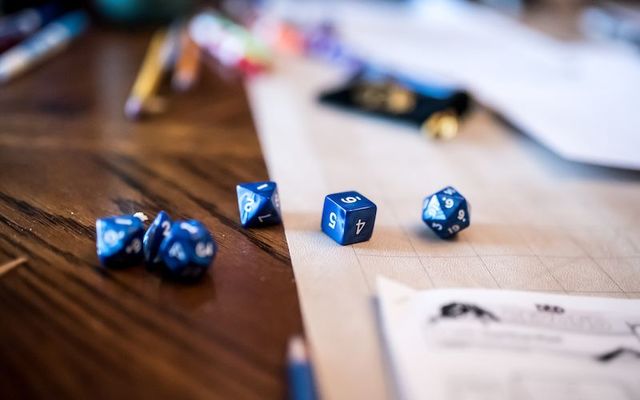A new study from University College Cork (UCC) shows that playing Dungeons and Dragons can positively support players’ mental health, highlighting the transformative potential of the role-playing game in therapeutic settings.
Dungeons and Dragons, or D&D as it is often called, is a fantasy tabletop role-playing game that requires creativity and collaboration from its players.
According to the official D&D website, “players form an adventuring party who explore fantasy worlds together as they embark on epic quests and level up in experience." The game is played during frequent group meetings over a period of weeks or months.
Researchers from the School of Applied Psychology at UCC decided to investigate how playing the game impacted the mental health of players after the 50-year-old game experienced a surge in popularity during the COVID-19 pandemic.
The study, which is published in the International Journal of Role-Playing, identified five key aspects that supported positive mental health, including escapism, exploration of self, creative expression, social support and routine.
While some clinical psychologists already use the game in therapeutic settings, the study's findings pave the way for clinicians and psychologists to further explore the benefits of the game as a therapeutic tool.
“Our research found that players discussed the benefits of escapism that accompanied playing D&D, and the positive impact that this had on their mental health. Players reported feeling a strong sense of control in-game during times when they felt they did not have control outside of the game. Whilst many hobbies may allow for creative expression, D&D uniquely allows players to collaboratively build and inhabit worlds of their creation," said Orla Walsh, study lead and PhD researcher in UCC School of Applied Psychology.
“The social support nurtured by playing D&D gives players emotional and social connection and offers them a space in which they can express themselves freely. While social support is a recognized benefit of many group activities, the collaborative storytelling aspect of D&D fosters a unique sense of camaraderie and shared experience among players."
The study suggests that D&D has significant potential in therapeutic settings, as players felt more comfortable exploring problems and practicing skills in a space separate from the real-world. After playing the game, study participants reported benefits in their everyday lives, including personal growth and an increased sense of autonomy and personal growth.
Dr Conor Linehan, UCC School of Applied Psychology, said: “This study found that D&D can bring a myriad of benefits for players. Although there are some clinicians and community groups that currently use role playing games therapeutically, those groups are predominantly active in the United States. Our study suggests that a wider rolling out of such therapeutic role playing groups may be of benefit in Ireland and across the globe, offering the great potential to support skills development, emotional exploration, problem solving and foster meaningful social connection.”
“The findings of this study have the potential to enhance our understanding of why D&D has proven successful in therapeutic settings. It provides a foundation for understanding how the game might be used as a tool in the future."




Comments